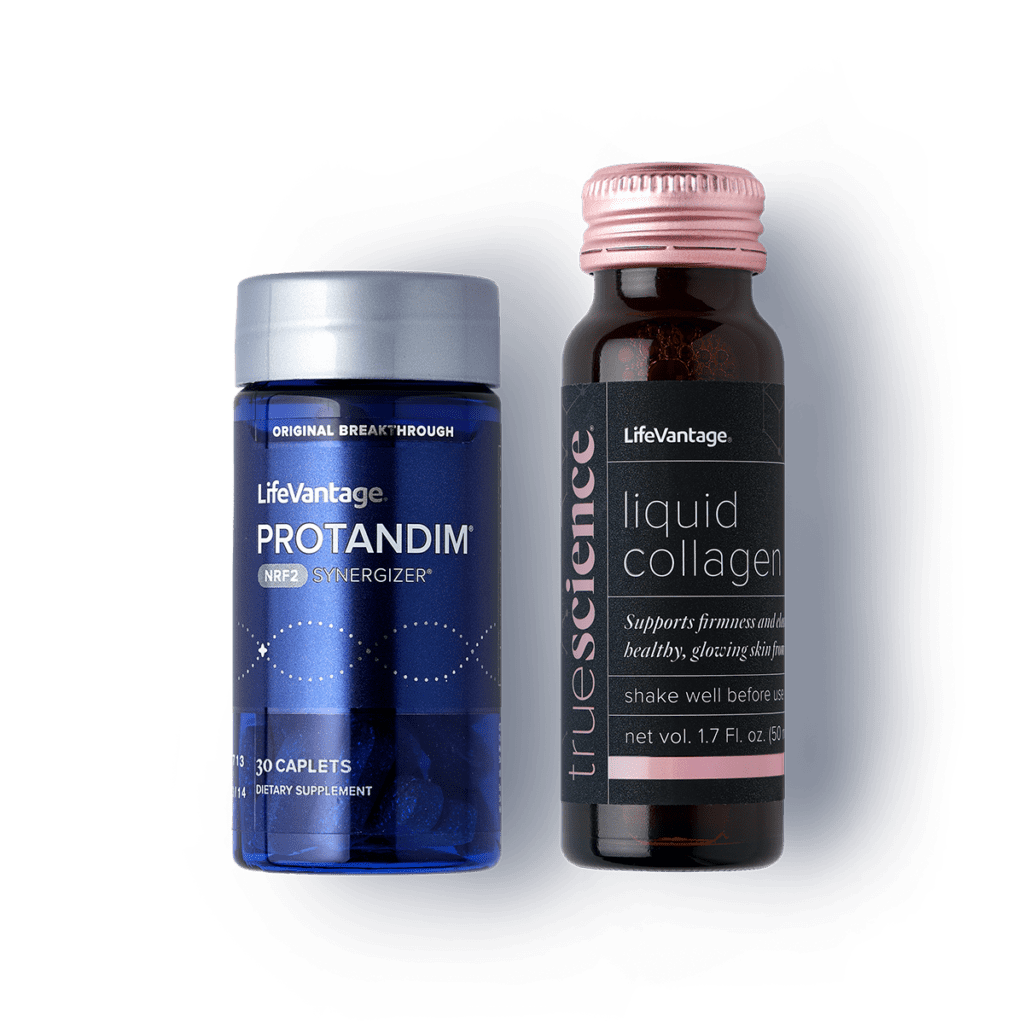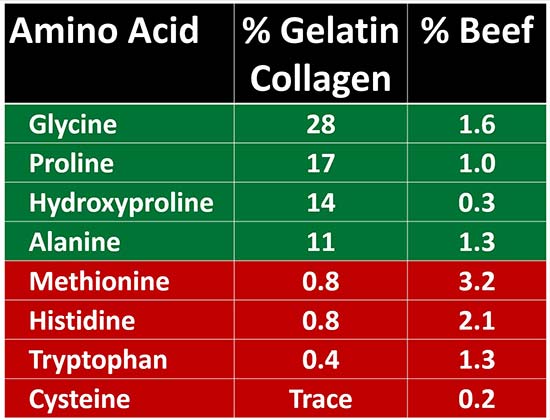Let’s explore why collagen is crucial for optimal health. Have you heard of collagen? It’s a protein that’s essential for maintaining healthy skin, hair, nails, and joints. But did you know that it’s also crucial for overall health?
Collagen is the most abundant protein in our bodies, and it’s responsible for providing structure to our skin, bones, tendons, and ligaments. As we age, our bodies produce less collagen, which can lead to wrinkles, joint pain, and other health issues.
In recent years, collagen has gained popularity as a supplement, with many claiming it can improve skin elasticity, joint health, and even aid in weight loss. But is there any truth to these claims? In this article, we’ll explore the science behind collagen and why it’s crucial for optimal health.
What is collagen?
Collagen is the most abundant protein in our bodies, making up about 30% of our total body protein. It is found in all connective tissues, including skin, muscle, tendons, cartilage and bones. It provides strength and structure to these areas of the body and plays an important role in maintaining optimal health.
Collagen is vital for healthy skin, hair, nails, bones, tendons, ligaments and joint health. It supports our body’s ability to heal itself and helps protect against damage from UV rays, stress, aging and environmental pollutants. Unfortunately, as we age our natural collagen production decreases. Therefore, it is important to maintain adequate levels of collagen in order to achieve optimal health.


Is Collagen Good for Your Health?
Collagen plays an important roles in maintaining good health.
Collagen comprises approximately 30% of the overall protein in the human body. Its main function is to offer structural support and durability to different tissues including skin, bones, tendons, ligaments, and cartilage. This is achieved by enabling them to stretch while preserving their tissue integrity.
Collagen plays a critical role in repairing soft tissue, muscle, and connective tissue such as tendons, ligaments, cartilage, and fascia. These tissues tend to weaken and become less elastic as people age. Additionally, connective tissue injuries can be challenging to recover from due to the limited blood supply in this type of tissue, which can slow down the healing process.
Collagen contains a significant amount of glycine, about one-third of its amino acids. It also has high levels of proline, hydroxyproline, and alanine, which are essential for building connective tissue. Your body utilizes these amino acids to repair stressed areas and other parts that require attention. Additionally, collagen supplements have other health benefits that are not widely known.
The glycine content in it may promote deeper sleep.
The treatment resulted in a decrease in joint pain and stiffness, including pain associated with osteoarthritis.
Glycine can contribute to better digestion and gut health.
The benefits of this treatment include lowered blood pressure and decreased cardiovascular damage.
Improved glucose tolerance
Glycine has been found to inhibit the consumption of NADPH, which is used to recharge antioxidants after they become oxidized, resulting in reduced inflammation and oxidative damage.
What Are The Health Benefits of Collagen Supplements?
Collagen is a crucial protein found in the body that helps maintain healthy skin, bones, muscles and joints. Unfortunately, as we age, our body’s ability to naturally produce collagen declines. But luckily, taking a collagen supplement can help restore those levels for relief of painful joints and other issues associated with aging.
There are many health benefits associated with collagen supplementation. It may improve skin appearance by reducing the signs of aging like wrinkles and fine lines through its role in retaining moisture in the skin.
Collagen may also prevent bone loss due to osteoarthritis as well as thwart cartilage tissue damage and joint pain associated with normal wear and tear over time or due to physical activity.
Collagen supplementation has been linked to increased muscle mass too which means it can help support metabolic function and aid weight management goals.
Studies have even shown there is serious potential for collagen to improve cognitive performance along with gut health.
So if you’re looking to keep your body healthy both inside and out, giving your system a boost of collagen may be just the ticket!


Vibrant, youthful skin comes from within when you pair 2 products with beautifully ageless benefits. Together, TrueScience® Liquid Collagen and Protandim® Nrf2 Synergizer® help rebuild collagen from within and defend your skin health. Liquid Collagen helps activate your body’s ability to create collagen and helps reduce the appearance of fine lines and wrinkles as it increases your skin’s moisture and improves texture. Nrf2 Synergizer helps minimize visible effects caused by oxidative stress and activates the production of antioxidants. You’ll feel good in your skin and glow from within.* Order your Liquid Collagen.
Exploring the Differences Between Collagen and Red Meat
The amino acid ratios of gelatin and collagen compared to beef are shown in the chart below. The former contain significantly more essential amino acids for connective tissue repair. As collagen makes up one-third of the body’s protein, relying solely on muscle meat for protein intake may not provide enough amino acids for strong connective tissue growth.


Collagen and red meat contain varying levels of amino acids with different effects on inflammation and healing, which will be elaborated on below.
Consuming animal protein that is rich in branched chain amino acids can aid in stimulating mTOR and muscle protein synthesis. However, it is advisable not to rely solely on animal protein for this purpose as the amino acids present in red meat have been found to have a negative correlation with longevity.
Did you know that collagen and gelatin have very few essential amino acids? To balance your amino acid intake, try aiming for one-third of your protein to come from collagen or gelatin. You can reduce your consumption of eggs and meat by 50% and add in gelatin and collagen instead. This approach is based on Ray Peat’s view on amino acid balance. Give it a try and see how you feel!
In the past, our ancestors obtained collagen from consuming the entire animal. Nowadays, collagen and gelatin products are widely available as a source of collagen. It may be beneficial to incorporate these products into our diets since we no longer consume connective tissue as frequently.
Colagen Role in Degenerative Diseases
Collagen plays a significant role in degenerative diseases.
Ray Peat, a biologist specialized in physiology, explains that collagen, particularly in its cooked form of gelatin, aids in cellular protection against stress. He notes that amino acids in their free state have numerous hormone-like roles.
During times of stress, certain amino acids such as cysteine and tryptophan are released in significant amounts, which can have antimetabolic effects. Additional amino acids serve as nerve-modifiers, either inciting or suppressing activity, while some, like glycine, offer protection to cells and have anti-stress properties.
Consuming gelatin-rich foods can potentially improve degenerative and inflammatory diseases, while red meat contains higher levels of antimetabolic amino acids such as cysteine and tryptophan which may not be beneficial for those with such conditions.
Collagen Is Crucial for Optimal Health Based On The Imperfect Model
Peat’s approach has been based on an imperfect model. Let’s explore how collagen is crucial for optimal health.
According to Peat, the traditional concept of endocrinology that states hormones only signal cells with suitable receptors is incorrect. His research revealed that cellular responses depend on the cells’ state, which can be altered by nutrients, metabolites, hormones and neurotransmitters in the environment.
Many studies aimed to determine protein requirements for growth were conducted for the agricultural industry, with a focus on identifying the most cost-effective method to achieve maximum growth in the shortest time possible. This has led to a flawed paradigm and a distortion of official dietary recommendations, as described by Peat.
Maximizing growth does not equate to maximizing longevity and good overall wellbeing. PUFAs, such as linoleic acid, can lead to fast weight gain in young animals, which may be profitable but not ideal for human optimal wellness. In fact, there is a plethora of proof that excessive consumption of PUFAs is damaging to human physical condition.
The definition of “essential” amino acids in proteins was based solely on their impact on animal growth, disregarding other factors such as longevity, brain development, and overall health.
Limited research on the subject suggests that the adult human body requires very little tryptophan and cysteine, according Peat. Therefore, consuming a lot of red meat and little collagen and gelatin-rich connective tissues may not be beneficial for one’s health.
Can Collagen Improve My Longevity?
Collagen has been studied for its potential benefits in extending life and preventing disease.
Peat stated that life extension research has revealed that limiting only tryptophan or cysteine can result in a greater increase in lifespan than caloric restriction in most studies. This was discussed in Peat’s archived article “Gelatin, Stress, Longevity.”
Tryptophan and cysteine have been found to hinder thyroid function and mitochondrial energy production, as well as other effects that reduce stress tolerance. Tryptophan is a precursor to serotonin, which can lead to inflammation and immunodepression, resulting in similar effects to those seen in aging.
Is there a potential correlation between limiting histidine intake in one’s diet and promoting longevity?
Gelatin is a protein that lacks tryptophan and has low amounts of cysteine, methionine, and histidine. Incorporating gelatin as a primary source of dietary protein can limit the presence of amino acids that are linked to various aging issues.
In response to stress, cells produce additional collagen, which can be broken down to facilitate tissue growth and repair. This breakdown of collagen also releases substances that aid in wound healing and prevent tumor spread. Among these substances is glycine, which promotes both wound healing and tumor inhibition.
This substance has various antitumor effects, which involve the prevention of angiogenesis and have demonstrated protective properties against liver cancer and melanoma.
Consuming animal proteins in their entirety, such as consuming fish head soup along with the muscles, or pork chops and head-cheese, and chicken-foot soup along with drumsticks, results in a significant intake of glycine and gelatin. This complete balance of amino acids supports various biological processes, including the growth of children’s tissues and organs.
Consuming only muscle meats results in an amino acid balance in the bloodstream similar to that seen during periods of high stress, when cortisol leads to muscle breakdown for energy and repair.
Excess tryptophan in muscle increases the formation of serotonin, which in turn stimulates cortisol production. The surplus cysteine and tryptophan derived from muscle also have a suppressive effect on thyroid function.
Glycine has been shown to prevent or correct a variety of injuries caused by an excess of tryptophane and serotonin, such as fibrosis, free radical damage, inflammation, cell death from ATP depletion or calcium overload, mitochondrial damage, and diabetes.
Alanine and proline can prevent certain types of cell damage almost as effectively as glycine. Therefore, gelatin is a better option than glycine. Gelatin has been used to treat diabetes for more than 100 years with success. Glycine inhibits lipolysis, which makes insulin more effective and prevents hyperglycemia. A diet rich in gelatin can also lower serum triglycerides.
The involvement of persistent lipolysis, insulin resistance, and inflammation in various diseases, particularly degenerative ones, suggests that glycine/gelatin may be beneficial for managing chronic conditions.
TrueScience:
Liquid Collagen
This botanically infused formula that helps accelerate the natural process to restore collagen. Start seeing these positive changes in as few as 8 weeks, thanks to a special blend of ingredients proven effective in clinical trials.
What Is The Difference Between Gelatin and Collagen?
Collagen and gelatin share the same amino acid composition but their properties vary due to different manufacturing methods. Gelatin is essentially cooked collagen which makes it more easily digestible and absorbable. This is especially significant for individuals with compromised digestion.
Collagen is derived from animal tissues such as bones, skins and tendons. The extraction process involves acid or alkali treatment and purification but does not involve heat. Due to its larger molecular structure, collagen is insoluble in water.
Heating collagen results in the breakdown of molecular bonds, leading to the formation of gelatin hydrolysate or hydrolyzed gelatin. Gelatin is also referred to as collagen hydrolysate or collagen peptides. Due to the shorter peptide chains, gelatin has the ability to dissolve in water and form a thick gel.
The variances in health advantages between collagen and gelatin are most likely insignificant. This is because when collagen is consumed, it undergoes breakdown in the gastrointestinal tract into smaller peptides that are equivalent to gelatin.
As only free amino acids can enter the bloodstream, collagen and gelatin have fundamentally identical systemic effects, as their basic composition is the same. However, if an individual has ulcers or other gastrointestinal issues, gelatin may be a better option.
The Different Types of Collagen
Scientifically, 28 different types of collagen have been identified, but most supplements only contain three of these as they make up 90% of the collagen in the body.
- Type 1: collagen is present in the skin, hide, tendon, scales, and bones of various animals such as cows, pigs, chickens, and fish.
- Type2: this type is usually developed in cartilage and comes from poultry.
- Type 3: is a fibrous protein that can be found in the bone, tendon, cartilage, and connective tissues of various animals such as cows, pigs, chicken, and fish.
How Can I Increase My Collagen Levels?
One of the best ways to increase collagen levels is through diet. Eating foods that are rich in collagen, such as fish, poultry, eggs, bone broth and gelatin can help support healthy skin, hair and nails. Additionally, adding antioxidant-rich foods to your diet such as fruits and vegetables can help protect against free radical damage which can cause premature aging of the skin.
What Is The Best Source For Your Collagen?
When selecting a source of collagen, it is important to make an informed decision.
Traditional diets have historically contained collagen through the consumption of broth made from boiled chicken feet or beef bones, which are the preferred sources. If opting for a collagen or gelatin supplement, it is important to consider certain factors when selecting a product.
Laboratory testing has shown that certain collagen and bone broth products may contain contaminants commonly found in concentrated animal feeding operations, including heavy metals, chemicals like butylparaben, and veterinary drugs such as antibiotics. It is important to inquire about organic and/or grass-fed certification to ensure quality and safety.
To ensure the absence of contaminants, it is recommended to look for collagen supplements that have been certified “100% Organic” by the USDA or certified grass fed by the AGA, which has more rigorous standards. This also applies to gelatin, although it may be more challenging to locate and can be expensive, costing around $50.
Collagen and gelatin have similar protein profiles and benefits. Collagen is affordable and available in organic options. Gelatin improves the texture and satiety of foods. Both can improve your health, so choose the one that suits you best.
Nonorganic collagen is typically created using hydrolyzed cattle hides as opposed to beef bones. The use of cattle hides for collagen production raises questions about organic certification, as hides are often scraps from the leather tannery industry and undergo extensive processing with potentially harmful chemicals.
The hides are delivered on pallets and may deteriorate for several weeks before undergoing tannery processing. Despite being salted, they are not completely preserved, emitting a strong odor. The tanning process generally includes an acid bath and the use of harsh chemicals like sulfuric acid or chromium salts.
If you’re looking for a collagen supplement, TrueScience Liquid Collagen is the best choice. It can help you reduce the appearance of fine lines and wrinkles, improve skin moisture, tone, and texture, and protect against oxidative stress. It also prevents collagen breakdown and improves skin elasticity, as well as supporting healthy, youthful-looking hair and nails. Want to learn more about the formulation and how it can benefit you? Keep reading about our collagen supplement!
What Foods Contain Collagen?
Collagen is a protein found in the connective tissues of animals that has many functions and can help keep our bodies healthy. Eating foods that contain collagen can be a great way to benefit your body through nutrition. Gelatin, derived from collagen, is one of the more popular sources of collagen-rich foods. Bone broth made from the bones and cartilage of animals is especially beneficial and known for containing high levels of gelatin and related proteins. Other animal products such as pork skin, beef, fish and chicken skin are also good sources of collagen.
In addition to eating collagen-containing foods, it’s important to get enough vitamin C to encourage proper synthesis of new collagen. Vitamin C rich items such as citrus fruits, broccoli and bell peppers should be added into your diet regularly in order for you to get maximum benefit from all the lovely nutritious things you are already eating that contain collagen. While there has not yet been enough research done on the effects that eating these kinds of food have on increasing our own body’s levels of this essential protein, it can’t hurt to sneak in some extra goodness from this type of food where we can!
Concluding: Collagen Is Crucial for Optimal Health
Collagen is a protein that is found in our skin, bones, muscles, and tendons. It’s responsible for giving our skin elasticity, our bones strength, and our muscles and tendons the ability to move. As we age, our bodies produce less collagen, which can lead to wrinkles, joint pain, and other health issues. We discussed why collagen is crucial for optimal health and how to ensure that you’re getting enough of it.
1. Understand the Benefits of Collagen
Collagen has many benefits, including improved skin health, reduced joint pain and stiffness, increased muscle mass, and improved heart health. It’s also been shown to support gut health and boost metabolism.
2. Incorporate Collagen-Rich Foods into Your Diet
One of the best ways to ensure that you’re getting enough collagen is to eat foods that are rich in this protein. Some examples include bone broth, fish, chicken, and egg whites. You can also take collagen supplements in the form of powders, capsules, or gummies.
3. Take Collagen Supplements
If you are unable to get enough collagen from your diet, you can consider taking collagen supplements. These supplements come in various forms such as capsules, powders, and drinks. It is important to choose a high-quality supplement that is derived from natural sources.
In conclusion, collagen is crucial for optimal health. By incorporating collagen-rich foods into your diet, and take collagen supplements, you can ensure that your body is getting the collagen it needs to function at its best.
How we activate your health with coaching a natural approach
Yes, … there is a way to naturally repair your body on a cellular level… through activating your body to do what it is supposed to. This is not supplementation, it’s activation! Start your Activated Living today. The Little Yellow Activator reduces oxidative stress by an average of 40% in 30 days and increases glutathione by approximately 300% in 120 days.* Protandim Nrf2 Synergizer is a daily food supplement that supports cellular health and well-being. To order LifeVantage products, visit our webshop.



